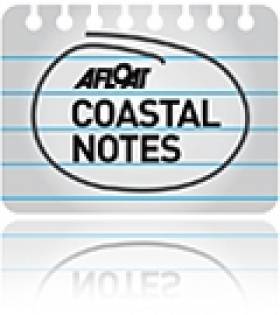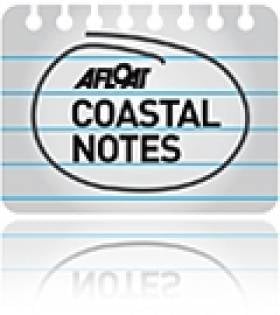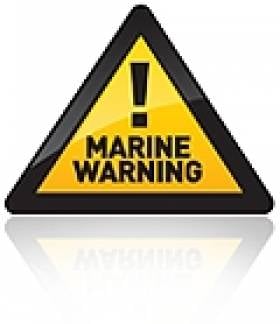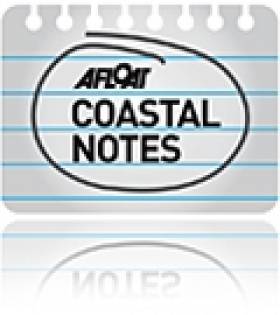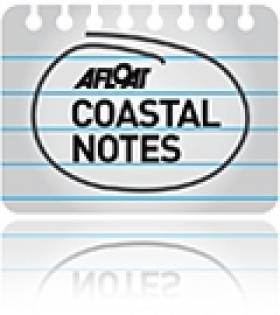Displaying items by tag: Shell
Wind Energy Ireland Concern Over Shell Withdrawal from Irish Renewable Energy Market
Wind Energy Ireland has expressed concern at Shell’s withdrawal from the Irish offshore renewables market.
A Sunday Business Post exclusive today quotes a senior industry source stating that Shell is leaving to focus its efforts on “countries with more accommodating legislative frameworks”.
Shell had agreed deals with Cork-based company Simply Blue to acquire a 51 per cent share in the Western Star Floating wind project off the coast of Clare and to jointly develop the 1.3GW Emerald floating wind project off the south coast.
Norwegian energy major Equinor, which had been working the ESB to develop a 1.4GW floating wind farm off the Clare and Kerry coast, also left the Irish market last year.
This second significant withdrawal by an energy major has prompted Wind Energy Ireland to call on the government to put in place a “fit-for-purpose policy framework” for developing offshore wind.
 WEI chief executive Noel Cunniffe
WEI chief executive Noel Cunniffe
“While it is a concern to see Shell pulling out of the Irish offshore wind market, it is important to remember we still have some of the best offshore wind energy resources in the world and a growing pipeline of projects,” WEI chief executive Noel Cunniffe told the newspaper.
He said he understood that “Simply Blue Group remain fully committed to their two floating offshore wind projects and are doing everything to make them happen”.
“We need to see a policy put in place for the offshore wind process and, critically, the Maritime Area Regulatory Authority (MARA) must be established as soon as possible to give developers clarity on how the next phase of offshore wind projects can deliver for 2030,” Cunniffe said.
The Sunday Business Post says it understands that the draft terms and conditions for the first Offshore Renewable Electricity Support Scheme (O-RESS) auction caused “significant disquiet among renewable energy developers when they were released late last year”.
It reports that under the draft terms for the O-RESS auction, a successful energy company would be required to put up a “performance security”, or a bond, of €24 for every megawatt hour of energy the proposed project will deliver.
The newspaper says a major issue in the draft guidelines was believed to relate to “a clause which stated that the Minister for Energy may take the bond if the project has not been granted planning consent by 2024”.
Read more in The Sunday Business Post HERE
Shell Gives Up On Rockall, Says 'No Further Potential'
#Oil&Gas - The Irish Times reports that Shell and its partners have relinquished their State licence for hydrocarbon exploration at Rockall, claiming that it has "no further potential".
The decision – which means Shell no longer holds any offshore exploration licences in the State's waters – comes as a blow to a Government that recently announced the redoubling of its efforts to survey our coastal waters for new and exploitable oil and gas resources.
However, it is not unprecedented, as Shell admitted upon receipt of its licence for the Rockall Basin off Donegal in 2005 that the risk and expense of drilling at such a marginal deep-water site worked against any potential commercial gains.
The rapidly falling prices of oil and gas may also be playing a role in redirecting oil companies' attentions away from more peripheral prospects. The Irish Times has more on the story HERE.
#CoastalNotes - The Environmental Protection Agency (EPA) insists there was "nothing underhand" about its amendments to a 2007 licence for Shell's gas terminal at Bellanaboy in Co Mayo.
The Irish Times has a report on Tuesday's opening remarks of a three-day action at the Commercial Court, where it was alleged that the EPA intended to amend an earlier licence for the facility despite a more recent one being quashed by the High Court over environmental concerns.
As previously reported on Afloat.ie, local man Martin Harrington had claimed the EPA failed to carry out a proper Environmental Impact Assessment of the north-west Mayo region to meet EU requirements.
The outcome of that case last October was hailed as a victory for the long-time campaign against the controversial Corrib Gas Project.
Harrington's latest action is a judicial review challenge aimed at quashing the amendments to the 2007 licence. The Irish Times has more on the story HERE.
Marine Notice: Corrib Field Seismic Survey Set to Recommence
#MarineNotice - The latest Marine Notice from the DTTAS concerns the scheduled recommencing of a 3D seismic survey over the Corrib Gas Field by Shell E&P Ireland Ltd.
Some 40% of the survey was completed in 2012, and the remaining 60% is now set to be conducted with a planned starting date of 20 February 2013. Weather permitting, the survey should be completed in June 2013.
The seismic acquisition will comprise a four-boat operation. The M/V Ocean Pearl (Call sign C6ZW4) will lay the ocean-bottom cables on the sea floor and will collect all data records, while the M/V Malene Ostervold (Call sign LCIU3) will serve as the source vessel. In addition to these vessels, a third vessel, the M/V Vikland (Call sign C6UL5) will assist the M/V Ocean Pearl with cable laying and also act as a utility vessel. A fourth vessel, the M/T Deilginis (Call sign EISL), will act as a guard wessel.
Seismic acquisition will occur over a set of four active 12km-long solid ocean-bottom cables laid 400m apart on the sea bed at a depth of 350m. At the end of each cable is a 1km lead-in section which is attached to a standalone buoy at surface. These buoys contain a power pack as well as a recording system. Each buoy contains a radio-link with the cable-laying vessel for remote control of the buoy and for data quality control. Each buoy has a GPS receiver, so its location is well known to both seismic vessels. One by one these cables are 'rolled along' (ie picked up from the northern edge of the active spread, and redeployed at the southern edge). The M/V Malene Ostervold will be towing two seismic sources, and operating around the set of four active 12km-long cables.
The overall survey area is divided into three work areas or Contact Zones (A, B and C). A Contact Zone is defined by a 10km radius circle. Radio Navigation Warnings will be given out daily by the Irish Coast Guard, giving the co-ordinates of the centre point of the Contact Zone for that day. All vessels will be listening on VHF Channel 16 throughout the project.
Full details - including co-ordinates and maps of the survey area - are contained in Marine Notice No 07 of 2013, a PDF of which is available to read or download HERE.
Corrib Pipeline Go-Ahead Rests With Energy Minister
Energy Minister Eamon Ryan will issue a decision "in the coming weeks" on Shell Ireland's plans to complete the Corrib gas pipeline, The Irish Times reports.
The news follows yesterday's ruling by An Bord Pleanála which approved revised plans final section of the controversial pipeline.
Shell also requires licencing from Minsiter for the Environment John Gormley and the Environmental Protection Agency (EPA) for the completion of the pipeline under the conservation area of Sruwaddacon esturary to Shell's Ballinaboy gas terminal.
It would be a further two years before the pipeline is fully operational.
An Bord Pleanála's Inspector Martin Nolan commented that the "clarity and transparency" of Shell's revised application gave "confidence that the safety of the public is fully protected".
However planning was only approved with 58 conditions related to the construction and management of the 8.3km pipeline - including extra security at the landfall valve at Glengad, which has raised the ire of local residents at last year's oral hearings.
The Irish Times has more on the story HERE.
Corrib Project is 'Safe' Says Shell
Any potential risk from the Corrib gas pipeline off Ireland's west coast has been "overstated", according to representatives from Shell.
On the final day of the An Bord Pleanála hearing into the final phase of the pipeline, the oil company's senior counsel moved to assure a concerned public that the project was designed to "the highest safety standards".
"No other Irish development proposal has been subject to such an amount of study and surveys over such a period of time,” said Esmonde Keane at the hearing in Belmullet, Co Mayo on 1 October.
The Corrib project involves the development of a gas field west of the Mullet Peninsula, including the construction of a pipeline to the mainland and a coastal processing plant. The mainland phase of the plan has attracted much concern among local residents.
Two opponents of the project, environmental consultant Peter Sweetman and Monica Muller, a local resident, walked out of the hearing in protest over Keane's closing remarks, arguing that they were intended as “a legal submission”.


























